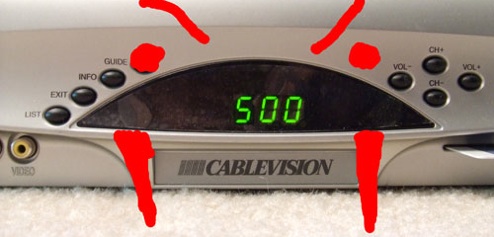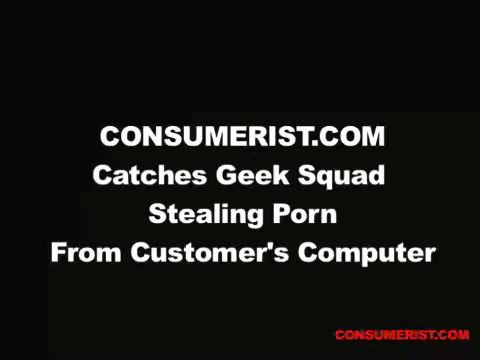../../../..//2008/06/19/over-400-people-have-been/
Over 400 people have been charged in the government’s national mortgage fraud probe, called “Operation Malicious Mortage,” which dealt with individual rather than corporate fraud. [Reuters]
Thanks for visiting Consumerist.com. As of October 2017, Consumerist is no longer producing new content, but feel free to browse through our archives. Here you can find 12 years worth of articles on everything from how to avoid dodgy scams to writing an effective complaint letter. Check out some of our greatest hits below, explore the categories listed on the left-hand side of the page, or head to CR.org for ratings, reviews, and consumer news.
../../../..//2008/06/19/over-400-people-have-been/
Over 400 people have been charged in the government’s national mortgage fraud probe, called “Operation Malicious Mortage,” which dealt with individual rather than corporate fraud. [Reuters]

If you own an HP Pavilion Notebook and you’ve had problems with it—specifically overheating, problems with the power supply, and an inability to update the BIOS—then you might want to contact this law firm and tell them your story. We know class actions rarely help the individual consumer, but they do succeed in punishing the offending company occasionally, and we can’t think of a computer company more in need of a good class action smackdown than HP.

Unless you’re willing to risk being stranded with 14 other passengers several stories underground in a cattle car elevator on a hot summer day, or plunging at extreme speeds down an escalator with a broken chain, you might want to steer clear of NYC’s subway system lifts. The New York Times has published the results of an extensive investigation that includes tales of daily breakdowns, comically undertrained mechanics, and about $1 billion spent over the past decade.

Expired items are lurking on store shelves. A Fox5 investigation followed around the Nassau County’s Office of Consumer Affairs and found evaporated skim milk and diabetic medicine on the shelf that expired over a year ago. At a dollar store, they found the manager was cutting the expiration dates off boxes of expired toothpaste and still selling them. The Stop and Shop was fined $1450 for selling expired goods, the dollar store, $13,225 for 529 items. Don’t forget to check the expiration date, the store, or the Consumer Affairs Office, isn’t always going to do it for you.

Bill, whose small business checking account had been inappropriately drafted $1500, sent us the following email late last night:

Last week a Florida journalist busted Burger King VP Stephen Grover for using his tween-aged daughter’s email account to slam a farm workers group—but that wasn’t the only weird email event related to this story. Now Burger King is taking steps to officially distance itself from Grover’s actions and the other internal emails by announcing it’s launched an “internal investigation” into all three.

A Denver TV crew unseated a RAM chip and then took it to seven different repair centers for a diagnosis. The resulting displays of incompetence were pretty evenly distributed, with two Best Buy Geek Squads, one Circuit City Firedog, and one locally owned repair center (CTI) all failing miserably (“It’s the motherboard!” they each said). Of the three locations that correctly diagnosed and fixed the problem, Action Computers charged $50, Geek Squad charged $30, and the Firedog tech who hands-down won the challenge “reinstalled the memory cards in less than two minutes, free of charge.”

Wachovia, you old rascal! As soon as you wrap up one unsavory scandal, a new possible scandal comes to light. U.S. justice authorities are investigating the bank for possible money laundering through Mexican and Colombian money-transfer businesses. The Wall Street Journal reported on Saturday that “the bank is possibly facing a deferred-prosecution agreement with the US Department of Justice that would subject it to ‘extensive federal oversight,'” but Wachovia denies that any such discussion has taken place.

Cablevision responded to our post chastising their attempt to force customer to upgrade to digital service by pointing to an unrelated FCC mandate. Cablevision admits that there is no connection between their unilateral business decision to cut channels and the FCC-mandated transition to digital television, but their statement leaves several questions unanswered. Read Cablevision’s statement and our response, after the jump.

Update: Cablevision responds.

In regards to a headline grabbing AP investigation that found the drinking water of major cities contained trace amounts of an array of pharmacopoeia, the deputy commissioner of New York City’s Department of Environmental Protection, “A person would have to drink one million glasses of water to get the dose of even one over-the-counter ibuprofen tablet or the caffeine in one cup of coffee…Even at eight glasses of water per day, this would take the average person over 300 years to consume.” So for those of you hoping to replace your medicine cabinet just by draining the Brita, sorry Charlie. However, there are no studies on the long-term effects to human of small exposure to a vast array of drugs, although, the Times notes, they have been shown to cause mutations in fish.

Internet service providers are actively tracking 100,000 users, reading every email they send and every website they visit, according to the Washington Post. The report coincides with a damning Associated Press investigation of ISP contracts which finds that they reserve broad rights to read essentially anything you view on the internet without any intervening supervision or regulation.

Judge Thomas P. Agresti of the Federal Bankruptcy Court in Pittsburgh on Tuesday approved an inquiry into “the impact of Countrywide’s bankruptcy procedures on the integrity of the bankruptcy process” by the Office of the United States Trustee, a Justice Department arm that polices bankruptcy filings.

Most corporate credit card data theft happens at the database level, like the massive T.J. Maxx breach. But Hannaford has notified investigators that the recent theft of 4.2 million accounts was caused by malware that was installed on the servers at each of its 300 locations. The software “intercepted data from customers as they paid with plastic at checkout counters and sent data overseas,” reports CNET.

When personal finance magazine Kiplinger asked the Geek Squad about our video that caught one of their technicians stealing porn from our harddrive (peeping tomism, hardly limited to Geek Squad, is just as rampant in the computer repair industry as the photo developing industry), an unidentified Geek Squad spokeswoman ingenuously responded, “We have been the target of a blog that prefers to focus on the exceptions to our service and not the overall, vast majority of successful services we provide to clients.” That’s like saying dirt is unfairly targeted by a broom. Where there’s a valid complaint, we’ll post. Where there’s a consumer whose rights aren’t respected, we will defend. We don’t have a vendetta against the Geek Squad, or any other company. We have a vendetta against bad customer service. That’s our bottom line. After the jump, the original undercover video…

Comcast is now claiming that the FCC “has no legal power to stop the cable giant from engaging in what it calls ‘network management practices’ (critics call it peer-to-peer traffic blocking),” reports Ars Technica. In an amazing display of spin, Comcast writes that letting the marketplace “maximize consumer welfare” has been “enormously successful” as proven by the “Comcast customer experience”—seriously, we’re not making up these phrases. On a less humorous note, the filing in which Comcast makes these claims also seems to imply that it will sue the FCC if it tries to enforce any changes on how Comcast blocks P2P traffic.
![]()
Part of ![]()
Founded in 2005, Consumerist® is an independent source of consumer news and information published by Consumer Reports.
